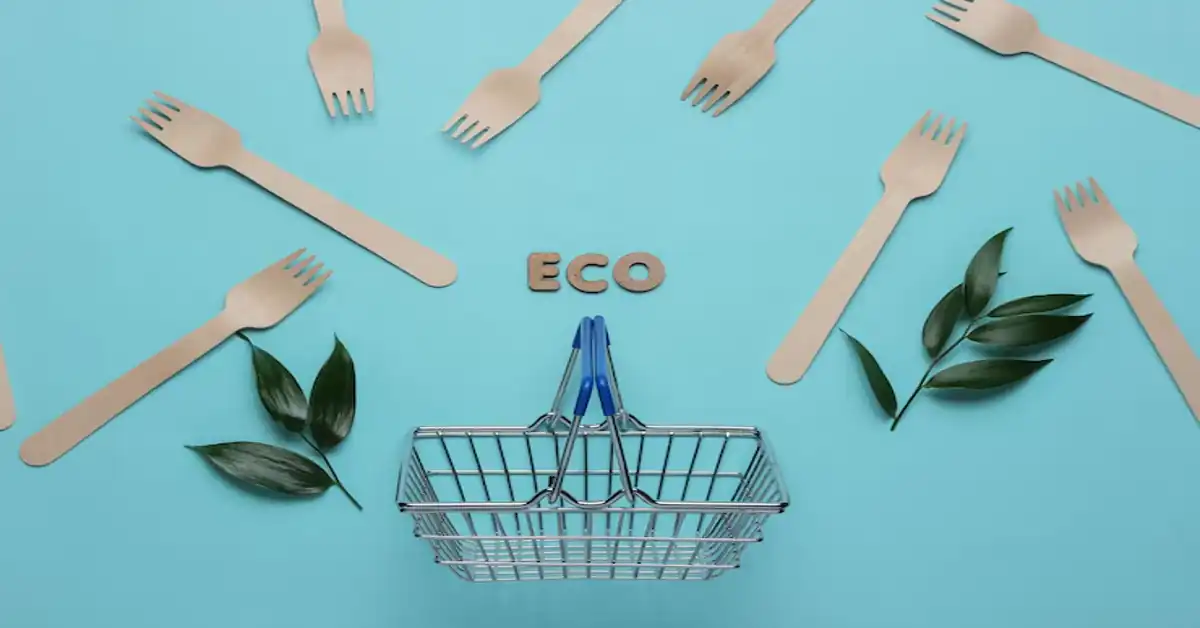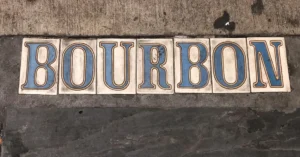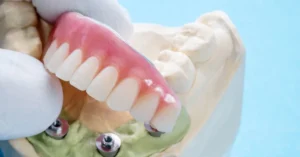In the quiet corners of bathroom vanities, gym bags, travel kits, and eco-boutiques, a new brand name has been appearing with increasing frequency: Besos Disposable. At first glance, it might seem like another player in the ever-growing disposable products market — face wipes, paper razors, biodegradable cups, etc. But as disposable culture faces both rising demand and rising backlash, the emergence of a brand like Besos reveals more than just consumer preference. It tells a story of evolving priorities: cleanliness, convenience, sustainability, and how all three are often at odds.
This article delves deep into the Besos disposable phenomenon, examining what it is, why it matters now, and what its trajectory tells us about our cultural moment.
What is Besos Disposable?
Besos Disposable refers to a line of single-use or limited-use personal and hygiene products. These include:
- Biodegradable face wipes
- Single-use toothbrushes
- Paper-based cosmetics applicators
- Travel-friendly sanitary items
- Compostable cleaning sponges
- Minimalist packaging with aesthetic branding
At its core, the Besos Disposable product range is a response to modern life’s fast pace. Designed for those on the move — travelers, minimalists, festival-goers, and wellness enthusiasts — these items offer convenience with an eco-conscious narrative.
But the story doesn’t end with utility. Besos Disposable has marketed itself as a lifestyle choice, not just a necessity. In a world hyper-aware of both hygiene and environmental degradation, the brand walks a tightrope between sustainability and disposability.
READ MORE: LikeManga: Redefining Digital Manga in the Age of Community and Creativity
The Disposable Dilemma: How Did We Get Here?
To understand the rise of Besos Disposable, it’s important to first consider how disposability became a dominant force in consumer culture.
The History of Disposables
In the post-WWII era, disposables represented modernity and progress. From disposable diapers in the 1960s to razors, coffee cups, and makeup pads, convenience became king. It was the age of abundance, where time-saving was the ultimate value.
Yet, as we crossed into the 21st century, the environmental cost of convenience began to draw scrutiny. The average person in a developed country uses dozens of disposable products each day. Most are plastics, foams, or mixed materials — nearly impossible to recycle.
The Cultural Shift
Over the past decade, a wave of sustainable startups has attempted to reverse the damage. Reusable straws, bamboo toothbrushes, menstrual cups, and refillable containers flooded the market. But while these products gained traction, they often required behavioral change — something the average consumer was reluctant to adopt at scale.
Enter Besos Disposable — a hybrid model. It acknowledges the real demands of urban life while incorporating materials and design aimed at minimizing long-term waste. It doesn’t demand sacrifice. Instead, it offers a guilt-minimized version of convenience.
Anatomy of a Brand: What Sets Besos Disposable Apart?
The genius of Besos lies in its branding as much as its functionality. It’s not just selling wipes or travel razors. It’s selling a story.
1. Aesthetic Minimalism
Packaging is biodegradable, but Instagram-worthy. It aligns with the visual codes of wellness, with neutral tones, elegant typography, and matte finishes.
2. Sustainability Messaging
Besos products are marketed as disposable, but responsible. Materials include:
- Bamboo pulp
- Cornstarch bioplastics
- Organic cotton
- Water-activated adhesives (no chemical glue)
Each product carries a label detailing its breakdown time and disposal method — a rare level of transparency.
3. Accessibility and Portability
Unlike premium eco-brands priced beyond reach, Besos maintains affordability by focusing on direct-to-consumer models, subscriptions, and bundle kits. The line is optimized for TSA regulations, backpacking, and hotel stays.
4. Micro-Use Design
Besos Disposable doesn’t aim to replace everyday use products, but rather to serve the moments when reusable options fall short. That moment on a flight, in a taxi, after a long hike, or on a last-minute work trip.
The Ethics of “Eco-Disposability”
The phrase itself is a contradiction. Can a disposable product ever be truly sustainable?
Material Composition
Besos Disposable products often feature biodegradable or compostable elements, but biodegradability is not a silver bullet. Items must meet industrial composting conditions to truly break down. A bamboo toothbrush left in a landfill won’t fare much better than a plastic one.
The brand makes strides in transparency, listing disposal instructions and the conditions needed for breakdown. However, municipal waste systems vary wildly — and few consumers follow through.
Carbon Footprint
Manufacturing and distributing single-use items inherently involves greater carbon output compared to reusables. However, Besos claims to offset this through carbon credits and efficient logistics, including:
- Localized production to reduce shipping distances
- Recyclable outer packaging
- QR code-traceable supply chains
Yet, third-party verification of such claims remains limited, a criticism common across the disposable market.
READ MORE: GoodNever.com: A Fresh Digital Vision for Value-Driven Communities
Convenience in the Age of Microbial Anxiety
Besos Disposable’s rise has coincided with heightened concerns about hygiene. The COVID-19 pandemic rewired how we think about cleanliness. Suddenly, the shared towel, the public faucet, or the community toothbrush holder felt like vectors of risk.
Single-use products offered control in an uncertain world.
Besos smartly filled the niche between sterile hospital wipes and luxury skincare routines. Their face wipes, for instance, are marketed not only for removing makeup but for “resetting the day” — a blend of psychological comfort and physical cleansing.
This has resonated especially with:
- Travelers, who want light, hygienic kits.
- Parents, seeking gentle, single-use solutions for children.
- Health-conscious millennials, drawn to the fusion of wellness and aesthetics.
Beyond the Bathroom: Besos’ Product Range Expansion
As the brand grows, it has extended into new verticals:
- Kitchen line: Compostable cleaning cloths, single-use sponges.
- Office kits: Disposable keyboard wipes, lens cleaners.
- Pet care: Bio-degradable grooming wipes and cleanup pads.
The broader goal appears to be positioning Besos Disposable as the go-to for temporary solutions with long-term values.
Some emerging concepts:
- Pop-up dispensers for public events and concerts.
- Hotel and airline partnerships for premium guest kits.
- Monthly rituals subscription kits, aligned with skincare cycles.
Is It Just Greenwashing?
A valid critique. Eco-disposables often straddle the line between innovation and illusion. Besos Disposable’s products, while more thoughtful than traditional alternatives, still belong to the consumption economy. More stuff, even if compostable, still taxes the Earth.
Skeptics argue:
- It encourages overconsumption under a green veneer.
- Most users won’t compost correctly.
- It offers psychological comfort without systemic change.
And yet, defenders say:
- Not everyone is ready for reusables.
- Besos meets people where they are.
- It’s a transitional step toward better habits.
The truth lies somewhere in between.
The Future of Besos Disposable: What Comes Next?
The next stage of Besos Disposable appears aimed at localization and personalization.
Customization
Future releases include skin-specific wipe lines, scent-free options for sensitive users, and travel bundles curated by destination (e.g., “City Pollution Kit” vs. “Tropical Climate Pack”).
Refillables and Hybrid Models
In a nod to critics, Besos is also piloting hybrid kits: a reusable container with replaceable disposable inserts — similar to how razors have evolved.
Corporate Gifting and Event Kits
Branding partnerships with fashion houses, wellness retreats, and eco-conferences suggest the company sees a long game: lifestyle integration, not mere product vending.
The Broader Implications
Besos Disposable is not just about facial wipes or compact toothbrushes. It’s a mirror reflecting how modern life is lived — fast, mobile, aesthetic, conscious, conflicted.
We demand cleanliness, but hate plastic. We want ease, but crave ethical clarity. In this middle space, brands like Besos are thriving — but they also challenge us to think more deeply about what we value: Is it enough to buy better? Or do we need to buy less?
Final Thoughts
Besos Disposable is a brand born of the tension between our modern conveniences and our ecological conscience. It invites us to consider not just what we use, but how, why, and what it means. In that reflection, there’s a chance — however slim — that the disposable might become a vehicle not for waste, but for awareness.
FAQs About Besos Disposable
1. What materials are used in Besos Disposable products?
Besos primarily uses biodegradable materials such as bamboo pulp, cornstarch bioplastics, and organic cotton, designed for industrial composting.
2. Are Besos Disposable products truly sustainable?
They are more sustainable than plastic counterparts but not without environmental impact. Proper disposal and mindful use are key.
3. Can I compost Besos Disposable items at home?
Some can be composted at home, but most require industrial conditions to break down efficiently. Always check the packaging.
4. Is there a reusable version of Besos products?
The company is piloting hybrid kits that combine reusable containers with refillable disposable inserts to reduce waste.
5. Where can I buy Besos Disposable products?
Products are available via their direct website, major online retailers, selected boutiques, and eco-friendly travel shops.









